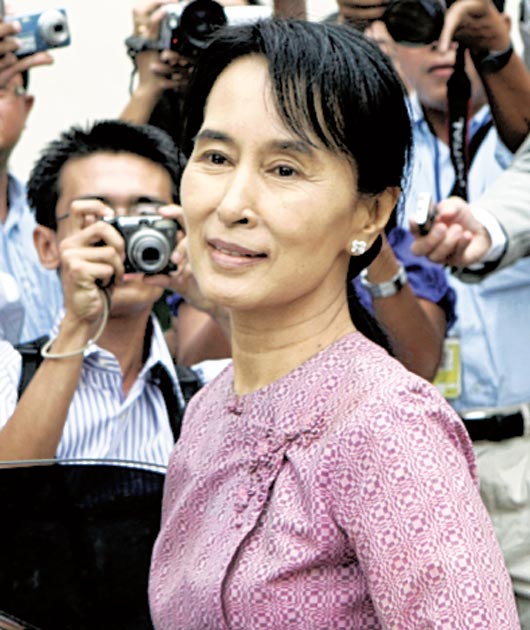Burma names the date for discredited vote

Burma's ruling junta set Sunday 7 November as the date for the country's first election in two decades yesterday, but made no concessions to critics who say the rules favour the army and its allies and bar the democracy leader Aung San Suu Kyi from taking part.
Foreign governments renewed calls for urgent changes allowing a free-and-fair vote. Suu Kyi's National League for Democracy is boycotting the polls, and other parties are wary of participating.
Yesterday's brief election-date announcement by the Election Commission was carried on state TV and radio. Political parties were asked to submit their candidate lists starting on Monday through to 30 August.
The elections are part of the junta's "roadmap to democracy," a seven-step programme which it says will shift the nation from almost 50 years of military rule in Burma. But critics say the rules and army-guided constitution are meant to perpetuate the military's commanding role in politics.
The National League for Democracy won a landslide victory in the last elections in 1990. But the junta refused to honour the results and has kept the Nobel laureate Ms Suu Kyi locked away, mostly under house arrest, for 15 of the past 21 years, ignoring worldwide pleas for her freedom.
The NLD and others said the election date would not allow sufficient time for campaigning, which cannot officially begin until the junta announces a campaign period.
"Without freedom of media or expression, the elections cannot be either free or fair," the NLD party spokesman Nyan Win said.
Election laws passed ahead of the voting have been criticised as undemocratic by the international community. They effectively bar Ms Suu Kyi and other political prisoners – estimated at more than 2,000 – and members of religious orders from taking part in the elections. Ms Suu Kyi's party was also automatically disbanded under the laws for refusing to register for the elections.
Strict rules for campaigning bar parties from chanting, marching or saying anything at rallies that could tarnish the country's image.
"For these elections to have any credibility, the regime must allow a free and fair campaign and polling process; release all political prisoners, including Aung San Suu Kyi; and instigate an inclusive dialogue with the full participation of all opposition and ethnic groups, towards genuine and lasting national reconciliation," Britain's foreign ministry said in a statement.
After visiting Burma officials in May, the US assistant secretary of state for East Asia, Kurt Campbell, said the junta's unwillingness to compromise and reform the electoral process led Washington "to believe that these elections will lack international legitimacy".
With the NLD out of the race, it appears likely that the junta-backed Union Solidarity and Development Party will get the most votes. The USDP was set up and supported by the generals since 1993. It has unrivalled access to funds, a nationwide presence, and a claimed membership of tens of millions.
Join our commenting forum
Join thought-provoking conversations, follow other Independent readers and see their replies
Comments
Bookmark popover
Removed from bookmarks